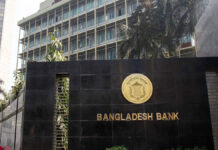
Bangladesh is still highly susceptible to interference from the tobacco industry as the country scored 68, the highest among its South Asian peers, in the Tobacco Industry (TI) Interference Index 2020, according to anti-tobacco campaigner PROGGA.
Nepal scored the lowest in the region followed by Sri Lanka and the Maldives, meaning that these nations performed comparatively better than Bangladesh in insulating the public health policies related to tobacco control from commercial and other interests of the tobacco industry.
Meanwhile, India and Pakistan came second and third after Bangladesh in terms of the overall score in the index, PROGGA said yesterday while unveiling Bangladesh’s ranking, which was based on occurrences of interference by tobacco companies in 2019.
Bangladesh scored 77 in 2018, the organisation added.
The anti-tobacco campaigner said the improvement came about in the 2020 index as the health ministry did not accommodate the tobacco industry’s unsolicited opinions on the draft National Tobacco Control Policy 2019.
“However, the total score is still high despite the improvement, which indicates that the country remains vulnerable to tobacco industry tactics to undermine efforts to protect public health,” PROGGA said while unveiling Bangladesh’s ranking at a webinar.
The event was jointly organised by PROGGA and the Anti-Tobacco Media Alliance (ATMA).
PROGGA also said tobacco companies managed to exploit the ongoing Covid-19 pandemic to the fullest for their benefit.
“Tobacco companies have particularly used their corporate social responsibilities (CSR) as a pretence for infiltrating policymaking and administration to extract a variety of benefits,” the platform said in a press release. In addition, the companies publicised their CSR activities as much as possible to salvage their corporate image among the public, it added.
PROGGA said the index was part of a global initiative conceptualised and initiated by the Southeast Asia Tobacco Control Alliance to promote the implementation of Article 5.3 of the WHO Framework Convention on Tobacco Control (FCTC).
The article binds signatory states to insulate their public health policies with respect to tobacco control from commercial and other vested interests of the tobacco industry, in accordance with national law.
The index attempts to gauge how the government was responding to the tobacco industry’s tactics by using the FCTC Article 5.3 Guidelines.
The score for the index is developed based on 20 questions, divided into seven categories and only from publicly available sources including government websites, reports published in mass media, and websites of tobacco companies, said PROGGA, also a research and advocacy organisation.
The scoring for questions ranges from 1 to 5. The lower the score is, the better the compliance with FCTC Article 5.3, said the anti-tobacco platform.
At the event, Saber Hossain Chowdhury, chairman of the Parliamentary Standing Committee on Environment, Forestry and Climate Change, said tobacco was an essential product but only for causing death.
“It cannot be on the list of essential commodities in any way. Rather it is contrary to the fundamental right to life enshrined in the constitution,” he said.
Chowdhury added that to provide tobacco companies incentives from the Covid-19 stimulus fund was totally unacceptable, according to the press release.
Presiding over the event, Prof AAMS Arefin Siddique, chairman of Bangladesh Sangbad Sangstha, said Covid-19 showed how detrimental tobacco use could be.
The prevalence of tobacco abuse is such a problem that it cannot be tackled only by the sole efforts of the Ministry of Health and Family Welfare. “All ministries should make a concerted effort to curb this havoc,” Siddique added.









